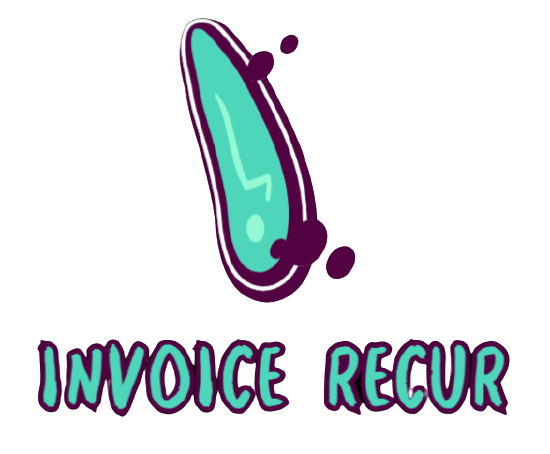Only 20% of candidates receive job offers after interviews, yet 93% of hiring managers end every interview with “Do you have any questions for us?” Your response to this moment can determine whether you join the successful minority. Research shows that 47% of recruiters reject candidates who demonstrate no knowledge about the company, while those who ask thoughtful questions to ask interviewer signal genuine interest and strategic thinking.
The best questions to ask interviewer at end of interview aren’t random conversation starters—they’re calculated moves that demonstrate your value while gathering intelligence about your potential workplace. Here are 13 strategic questions that separate amateur candidates from interview winners.
1. What Does a Typical Day Look Like in This Role?
Why This Works: This question reveals the reality behind job descriptions while showing you’re thinking practically about daily responsibilities.
The Strategic Angle: Questions to ask interviewer about typical day help you understand workflow patterns, priority management, and time allocation. You’ll discover whether the role involves constant firefighting or strategic project work.
Sample Follow-ups:
-
“How much of the day is spent in meetings versus focused work?”
-
“What tools or systems do you use to manage daily tasks?”
-
“How do priorities typically get set and communicated?”
Red Flags to Watch For:
If the interviewer struggles to describe a typical day or mentions “no two days are the same” without specifics, this could indicate poor role definition or chaotic management. Clear roles have recognizable patterns even in dynamic environments.
Pro Tip: Use their response to connect your experience: “In my previous role, I also balanced project work with client communications. I found that time-blocking helped me maintain focus while staying responsive.”
2. How Do You Measure Success in the First 90 Days?
The Psychology Behind It: This question demonstrates you’re already thinking about delivering results and meeting expectations—exactly what hiring managers want to hear.
Questions to ask interviewer about performance expectations require specificity. Push for measurable outcomes:
-
“What metrics will you use to evaluate my progress?”
-
“Are there specific projects or deliverables I should prioritize?”
-
“How frequently will we check in on these goals?”
Industry Context: In sales roles, expect revenue targets. For marketing positions, look for campaign performance metrics. Technical roles often focus on project completion and system improvements.
Warning Signs: Vague answers like “just get settled in” or “learn the ropes” suggest unclear expectations or poor performance management. Strong companies have defined 30-60-90 day plans.
Your Advantage: Use this information to create a personal action plan. During salary negotiations, reference these specific goals to justify your value proposition.
3. What Are the Biggest Challenges This Position Faces?
Strategic Intelligence Gathering: Questions to ask interviewer about challenges in role reveal problems you’ll inherit and opportunities to shine.
Deep Dive Approach:
-
“Are these challenges internal (team/process) or external (market/client)?”
-
“What solutions have been attempted previously?”
-
“How much autonomy will I have to address these issues?”
Reading Between the Lines:
-
Resource constraints often indicate budget limitations
-
Technology challenges suggest modernization needs
-
Team dynamics issues point to management or cultural problems
Positioning Yourself: After learning about challenges, briefly mention relevant experience: “I’ve navigated similar inventory management challenges in my current role. We implemented a just-in-time system that reduced costs by 15%.”
Red Flag Alert: If the interviewer avoids discussing challenges or claims there are none, they’re either being dishonest or lack awareness of real issues.
4. Can You Describe the Team I’d Be Working With?
Beyond Surface Information: Questions to ask interviewer about team dynamics reveal collaboration styles, reporting structures, and personality fit.
Essential Follow-ups:
-
“How long have team members been in their roles?”
-
“What are the team’s biggest strengths and development areas?”
-
“How does the team handle disagreements or conflicting priorities?”
Team Stability Indicators:
-
High tenure suggests good management and culture
-
Recent hires might indicate growth or turnover issues
-
Mixed experience levels can offer mentoring opportunities
Cultural Insights: Listen for language about collaboration versus independence, formal versus informal communication, and decision-making processes.
Entry-Level Advantage: Questions to ask interviewer for entry level position should emphasize learning: “What mentoring or buddy system exists for new team members?”
5. How Would You Describe the Company Culture Here?
Culture Decoding: Questions to ask interviewer about company culture require careful listening because official culture statements often differ from lived experience.
Probe Deeper:
-
“Can you give me a specific example of how these values show up daily?”
-
“How does leadership demonstrate cultural priorities?”
-
“What happens when someone doesn’t align with the culture?”
Behavioral Evidence:
-
How do they handle mistakes?
-
What gets celebrated and recognized?
-
How are decisions communicated?
**Questions to ask interviewer about company values should focus on application: “I see innovation is a core value. Can you share an example of how employees are encouraged to innovate?”
Remote Work Context: Questions to ask interviewer about remote work policy reveal cultural adaptation: “How has the culture evolved with remote/hybrid work arrangements?”
Warning Signs: Generic responses, inability to provide examples, or descriptions that contradict observed behavior during the interview process.
6. What’s Your Management Style?
Direct Leadership Assessment: Questions to ask interviewer about management style help you evaluate compatibility and set expectations for working relationships.
Specific Inquiries:
-
“How do you prefer to communicate feedback—written, verbal, formal reviews?”
-
“What level of autonomy do you typically give team members?”
-
“How do you support professional development?”
Management Style Indicators:
-
Micromanagers focus on processes and check-ins
-
Hands-off managers emphasize results over methods
-
Collaborative leaders discuss team input and consensus-building
For Different Experience Levels: Questions to ask interviewer for entry level position might focus on training and guidance, while experienced candidates should ask about strategic involvement and decision-making authority.
Compatibility Check: Consider your work style preferences. If you thrive with clear direction but they prefer complete autonomy, discuss how to bridge that gap.
7. What Professional Development Opportunities Are Available?
Career Investment Signal: Questions to ask interviewer about training and development demonstrate long-term thinking and growth orientation.
Comprehensive Coverage:
-
“Does the company have a training budget per employee?”
-
“Are there mentorship programs or internal coaching?”
-
“How does the company support conference attendance or external education?”
Smart questions to ask interviewer about growth opportunities include succession planning: “How do you typically prepare people for advancement?”
Budget Reality Check: Companies serious about development allocate specific budgets and have structured programs, not just vague promises of “we support growth.”
Industry-Specific Learning: Ask about role-specific skill development: “What emerging technologies or methodologies should someone in this role be learning?”
Internal Mobility: “Can you share examples of people who’ve advanced within the company? What paths did they take?”
8. Can You Share Examples of Career Growth from This Position?
Concrete Success Stories: Questions to ask interviewer about career progression require specific examples, not theoretical possibilities.
Follow-up Probes:
-
“What skills or achievements enabled their advancement?”
-
“How long did career progressions typically take?”
-
“Are there multiple potential career paths from this role?”
Growth Pattern Analysis:
-
Linear progression suggests clear advancement tracks
-
Lateral moves indicate diverse opportunity
-
External hiring for senior roles limits internal growth
Timing Expectations: Understanding typical timeframes helps set realistic career planning goals and demonstrates your long-term commitment.
Skill Gap Identification: Use their examples to identify capabilities you should develop: “It sounds like project management skills are important for advancement. Does the company offer PM training?”
9. How Is Performance Evaluated and Reviewed?
Performance System Intelligence: Understanding evaluation criteria helps you prioritize effectively and avoid performance surprises.
Process Deep-Dive:
-
“How frequently are formal reviews conducted?”
-
“Who provides input on performance evaluations?”
-
“How are performance ratings tied to compensation and advancement?”
Feedback Culture: Questions about ongoing feedback reveal whether you’ll get course-correction opportunities or only hear problems during annual reviews.
Goal Setting: “How are individual goals set and aligned with team/company objectives?”
Development Planning: “How do performance reviews connect to professional development planning?”
Transparency Level: Strong performance systems provide clear criteria and regular communication, while weak systems rely on subjective judgment and irregular feedback.
10. Where Do You See the Company in 5 Years?
Strategic Vision Assessment: This question reveals leadership thinking, growth plans, and your potential role in future success.
Strategic Follow-ups:
-
“What capabilities will the company need to develop to reach those goals?”
-
“How might this role evolve to support that vision?”
-
“What challenges do you anticipate in reaching those objectives?”
Market Position: Understanding their competitive landscape helps you assess job security and growth potential.
Investment Priorities: Learn where resources will be allocated—technology, talent, market expansion, or operational efficiency.
Your Contribution: Connect the vision to your potential impact: “Given those growth plans, I can see how my digital marketing experience could support the expansion strategy.”
11. Why Is This Position Open?
Critical Context: This question uncovers whether you’re replacing someone, filling a new role, or stepping into a problematic situation.
Scenario Analysis:
– Promotion/Internal Move: Positive sign indicating growth opportunities
– New Position: Suggests company growth and investment in capabilities
– Termination/Poor Fit: Requires understanding what went wrong
– Retirement/Life Change: Neutral transition situation
Follow-up Strategy:
-
For terminations: “What would you do differently in hiring for this role?”
-
For new positions: “What outcomes led to creating this position?”
-
For promotions: “What skills helped that person advance?”
Team Impact: “How has the team been managing without this role filled?”
Learning Opportunity: Use this information to position yourself as the solution to their specific need.
12. What’s the Work-Life Balance Like?
Quality of Life Assessment: Questions to ask interviewer about work life balance reveal cultural expectations around time, availability, and personal boundaries.
Specific Inquiries:
-
“What are typical working hours during busy periods?”
-
“How does the team handle urgent requests outside business hours?”
-
“What’s the company policy on vacation time and disconnecting?”
Actions vs. Words: Look for concrete examples: “Can you tell me about a time when someone took extended time off? How was their work covered?”
Industry Context: Some roles naturally require irregular hours, but healthy companies still protect employee wellbeing within those constraints.
Remote Considerations: “How do you ensure remote workers maintain healthy boundaries?”
Burnout Prevention: “What warning signs does management watch for regarding employee stress or overwork?”
13. What Does the Onboarding Process Look Like?
First Impression Planning: Understanding onboarding helps you prepare for success and demonstrates serious commitment to the role.
Process Components:
-
“How long is the formal onboarding period?”
-
“Who will I be working with during my first weeks?”
-
“What training materials or resources will be available?”
Integration Strategy: “How do you help new employees build relationships across the organization?”
Success Metrics: “How do you measure onboarding effectiveness? What indicates a successful integration?”
Tool and System Access: “What technology or systems will I need access to, and how is that typically handled?”
Cultural Integration: Strong onboarding addresses both practical needs and cultural assimilation, ensuring new employees feel prepared and welcomed.
Common Mistakes to Avoid
Research Failures: Never ask questions easily answered by their website or public information. This signals laziness and lack of genuine interest.
Salary Tunnel Vision: Avoid compensation questions during initial interviews unless they bring it up. Focus on mutual fit first, negotiate later.
Negative Framing: Don’t ask “What’s wrong with this company?” or “Why do people leave?” Frame concerns positively: “What retention strategies have been most successful?”
Generic Questions: Avoid one-size-fits-all questions. Tailor inquiries to the specific role, company, and industry context.
Interview Stage Mismatches: Questions to ask interviewer phone screen differ from questions to ask interviewer second interview. Early stages focus on basic fit, later stages dive deeper into specifics.
Overwhelming Volume: Limit yourself to 3-5 thoughtful questions. Quality trumps quantity, and respect the interviewer’s time constraints.
Conclusion
Strategic questions to ask interviewer transform interviews from one-sided evaluations into productive conversations about mutual fit. The 20% success rate for interview candidates increases dramatically when you demonstrate genuine interest, strategic thinking, and professional maturity through thoughtful questioning.
Remember that unique questions to ask interviewer to stand out should feel natural within the conversation flow. Prepare these questions in advance, but adapt based on what you learn during the interview. The best questions emerge from active listening and genuine curiosity about your potential role and workplace.
Your question-asking strategy should evolve throughout the hiring process. Phone screens allow for basic culture and role questions, while final interviews dive deep into team dynamics, performance expectations, and growth opportunities. By mastering the art of strategic questioning, you’ll not only gather essential decision-making information but also position yourself as a thoughtful candidate who approaches challenges strategically—exactly what every hiring manager wants to find.










